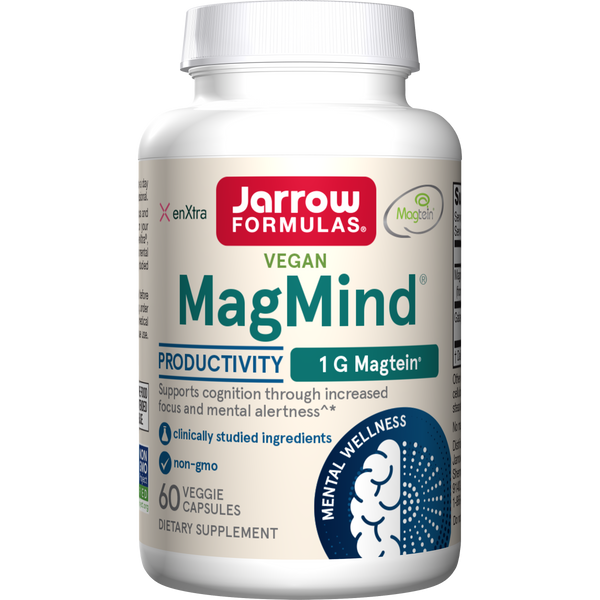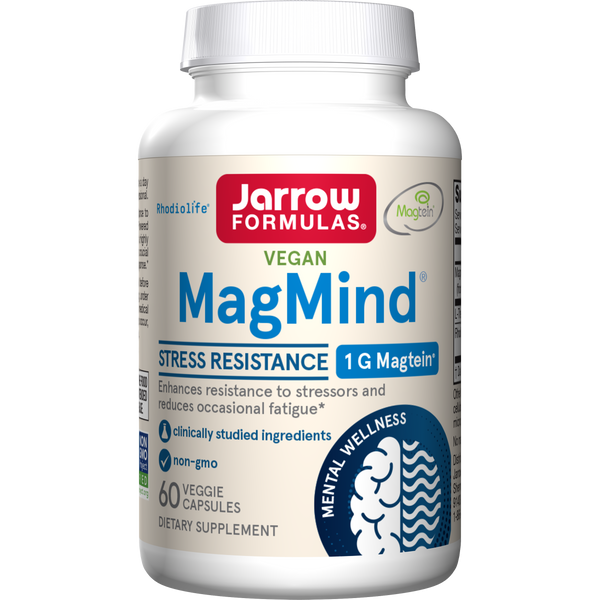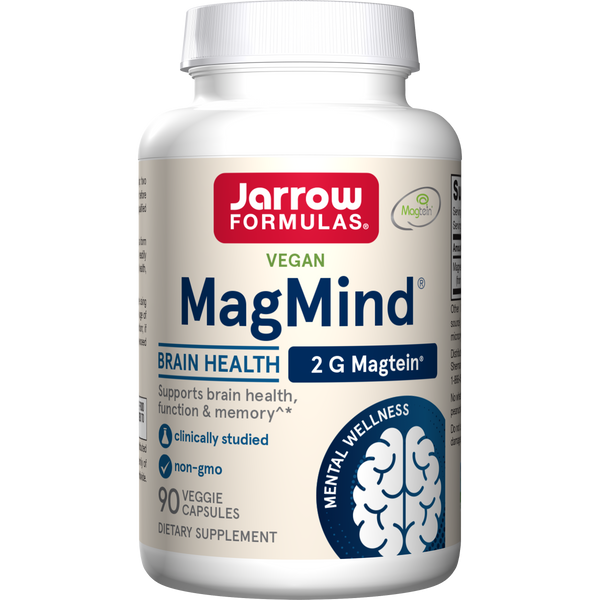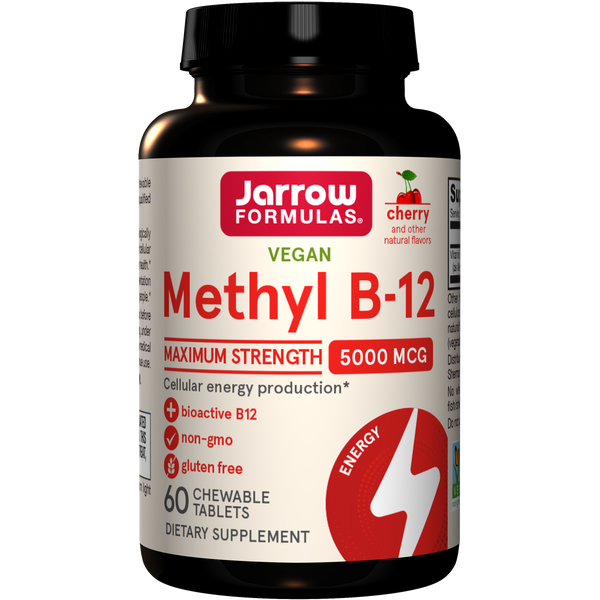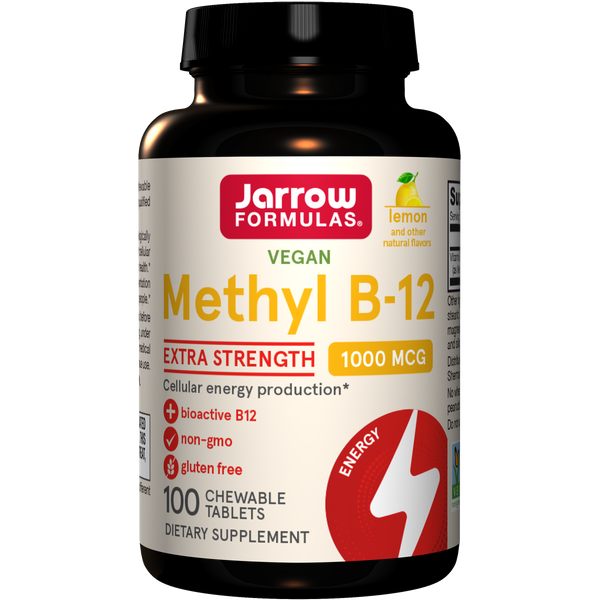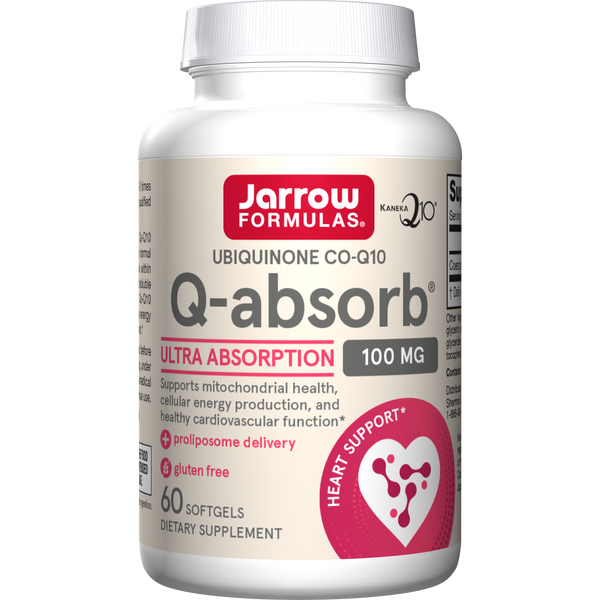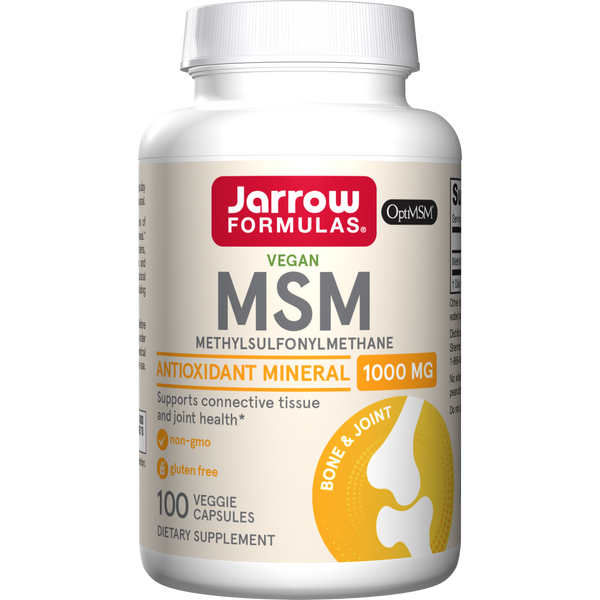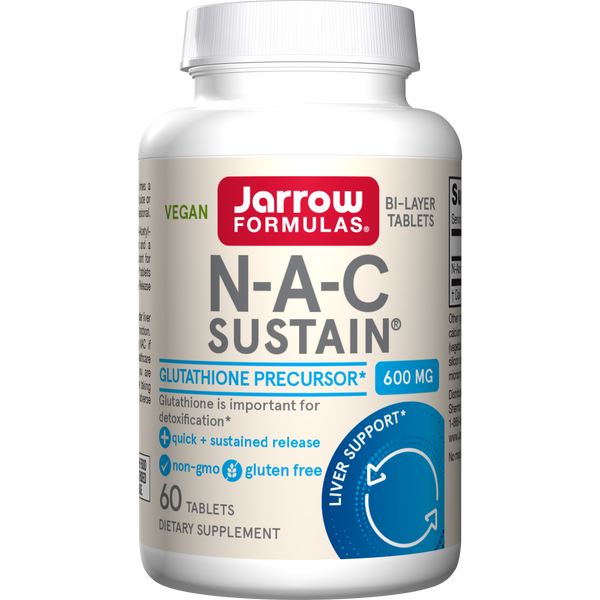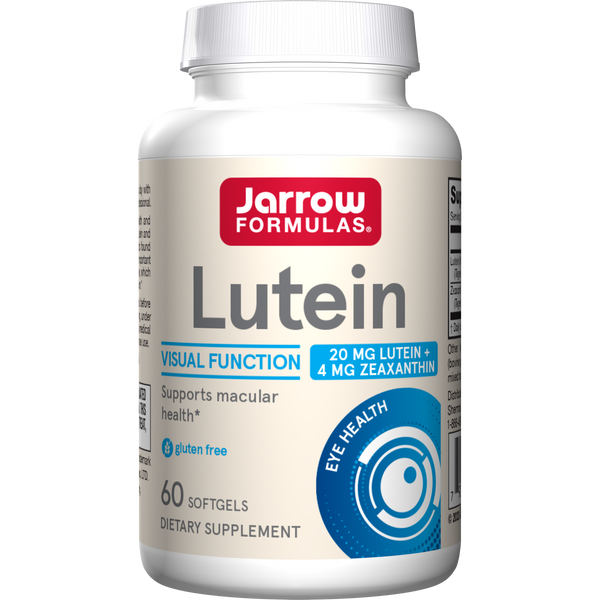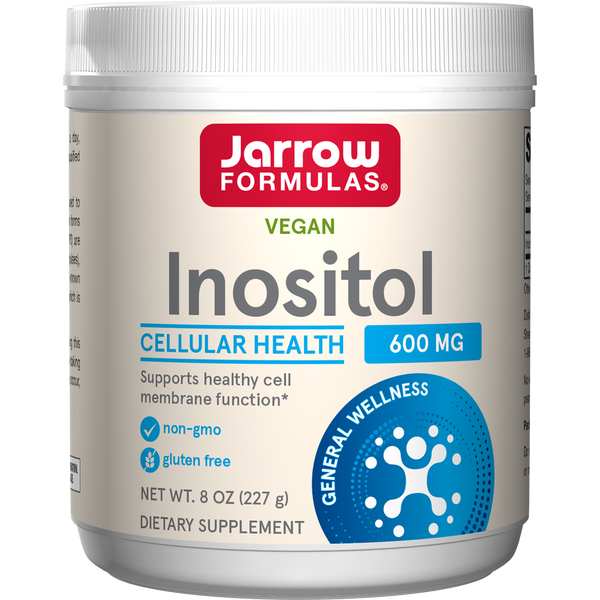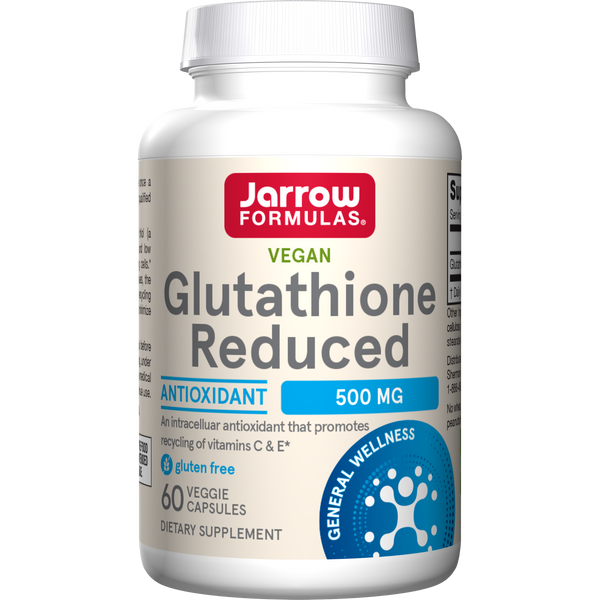MagMind Reference Guide

MagMind Reference Guide
MagMind®
Supports Brain Health and Function*
Magnesium L-threonate increases magnesium levels in the brain more effectively than other forms of magnesium. Emerging research shows that increasing the brain magnesium level supports relaxation, sleep quality, short and long-term memory.*
Who Can Benefit From this Product?
Jarrow Formulas’ MagMind® is for those seeking support for short- and long-term memory, sleep quality, and/or relaxation.*
Product Highlights
- Significant High Magnesium Brain-Bioavailability in the Brain
- Unique Performance-Promoting Effects
- 2 g of Magtein Per Serving
- Supports Short- and Long-Term Memory*
What is Magnesium
As the fourth most abundant mineral ion in the human body, magnesium (Mg) plays a diverse set of biological roles. Best known for its importance to skeletal and cardiovascular health, Mg is essential to fundamental functions like energy generation and nucleotide stockpiling for DNA/RNA synthesis. Magnesium levels also impact calcium (Ca) levels inside cells—as Mg levels decrease, Ca levels increase, imbalancing the cell’s electrolyte levels. Such a state is associated with muscle cramps, blood-pressure imbalance, and neurological deficiencies.
Nevertheless, an estimated 68% of Americans do not consume their recommended daily allowance for Mg. Some attribute this to modern dietary patterns. Others have observed that reduced magnesium levels can be attributed to food refining, processing and the use of industrial fertilizers, which typically lack magnesium.
Magnesium Effects on Synaptic Plasticity
It’s been known for some time that Mg increases energy availability in the brain while helping to contain neuronal excitability and maintain cognition. But the importance of Mg to memory has only begun to be elucidated in the past decade. In the jargon of neuroscience, Mg has significant effects on synaptic plasticity—or simply “plasticity.” But what does that mean?
Memory is formed through a complex set of processes that both increase the amount and enhance the strength of neuronal connections. The ability to adapt in this way (or be molded like plastic) then paves the way for easier learning and better memory. It appears that as magnesium levels rise, plasticity increases. Healthy magnesium levels support brain function.*
MagMind® Your MagForm
As noted above, a full 2/3 of Americans do not obtain adequate magnesium from their diets. On top of that, only about 5% of magnesium in the blood reaches the brain with typical forms of magnesium. So it’s important that a brain-directed magnesium supplement display both high efficiency in transporting Mg2+ from the digestive tract into the blood and from the blood into the central nervous system. When evaluated versus other forms of magnesium, such as magnesium chloride, citrate, glycinate and gluconate, the brain bioavailability and cognitive effects of magnesium L-threonate are beyond compare.*
Magnesium L-threonate is able to increase levels of magnesium in the brain because it manages to cross the blood brain barrier. For Mg, this is a difficult feat. Active transport maintains a higher concentration of Mg2+ in cerebrospinal fluid compared to blood, but strictly limits how much Mg2+ can be loaded into the brain. In rats, raising blood levels of Mg2+ 3-fold via intravenous infusion of MgSO4 for 5 days failed to elevate brain Mg2+ content at all. While in humans, increasing blood levels by up to 300% only leads to a 10- 19% increase in cerebrospinal fluid.
Clinically, increasing brain Mg2+ with magnesium L-threonate leads to some surprising effects. In both young and old rats learning and memory are altered, but the effects appear to be region-specific. In the hippocampus, changes occur that strengthen memories and facilitate learning. But in the amygdala, the seat of emotional memory, changes occur that seem to make it easier to “extinguish” fear associated with painful memories.
MagMind for Sleep & Anxiety
Knowing the biochemical underpinnings of magnesium in the brain, it may not be surprising to learn that Mg deficiency has been associated with poor sleep quality and anxiety. What happens in the brain undoubtedly affects the machinations of the mind. And raising brain levels with oral supplementation of magnesium may promote restful sleep and relaxation.*
MagMind® (Magnesium L-Threonate, or Magtein®) is a form of magnesium that has been shown by promising research to readily cross the blood-brain barrier and provide significant positive effects on cognition, memory and brain health.* MagMind may also improve relaxation and sleep quality.*







